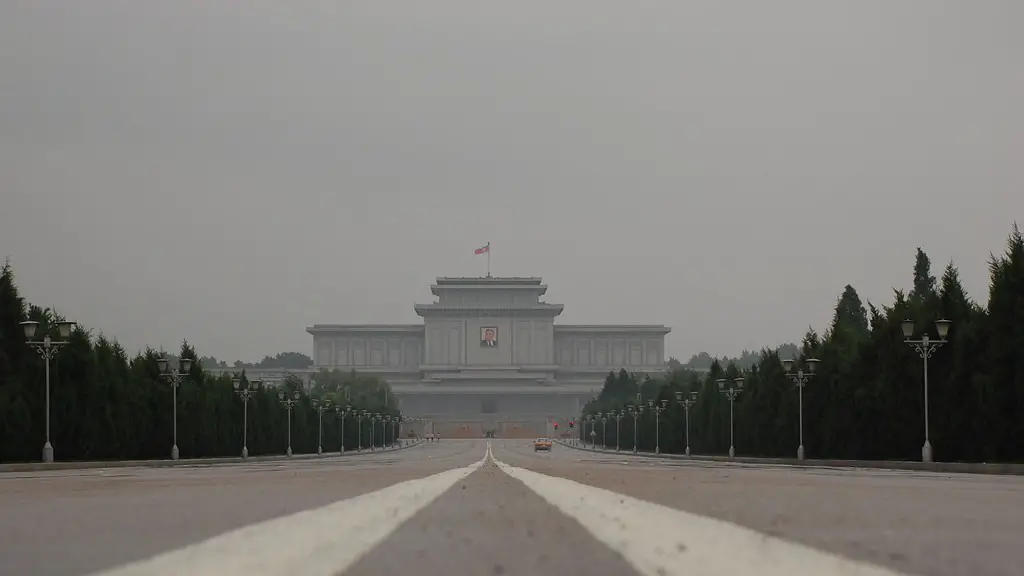Background Information
Otto Warmbier was an American college student who was detained in North Korea for over 17 months. During that period, he was subjected to severe mistreatment, arbitrary detention, and torture. On June 15, 2017, Warmbier was medically evacuated from North Korea in a state of “unresponsive wakefulness.” He tragically died from severe brain damage six days later. This article will explore how Warmbier ended up in North Korea and the implications of his mistreatment for the international community.
Organized Tours
Warmbier was in North Korea as part of a five-day tour organized by the China-based Young Pioneer Tours company. The group was composed of 14 tourists including Warmbier, as well as two Korean-American tour guides. According to the company’s website, Young Pioneer Tours specializes in tourism to “destinations your mother wants you to stay away from.” In March 2016, the company arranged a five-day tour to the North Korean capital of Pyongyang.
Banned Activities
During their time in North Korea, Warmbier and the other members of the tour group attended a variety of cultural activities, including visits to monuments and museums, a two-day tour to the Demilitarized Zone, and a performance of the Arirang Mass Games. However, there are certain activities which are strictly prohibited for visitors to North Korea, including engaging in missionary work, photographing military installations, or engaging in political activities.
Arrest and Detention
On January 2, 2016, Warmbier was arrested by North Korean authorities at the Pyongyang Airport as he was about to board a plane and return to the United States. He was accused of stealing a propaganda poster from the hotel he was staying at and sentenced to 15 years of hard labor. During his time in captivity, he was subjected to harsh interrogation methods, physical abuse, and systemic torture, which all culminated in his tragic death on June 19, 2017, just days after his release.
International Reactions
Warmbier’s death caused worldwide shock and condemnation. The United Nations, the United States, the United Kingdom, Germany, South Korea, and other countries condemned the North Korean government and issued a joint statement condemning the mistreatment of Warmbier while in captivity. Senior U.S. officials even referred to his death as “an act of murder committed by the North Korean government”. In response, North Korea called the international outcry against Warmbier’s mistreatment “a smear campaign to defame the political and social system of the DPRK.”
Implications for International Policy
Warmbier’s death serves as a stark reminder of the grave risks posed by travel to North Korea, even on organized tours. It also is a jarring reminder of the brutality of the North Korean regime, and raises difficult questions about how the international community should respond. As of yet, there has been no coherent policy response from the international community, although it appears that the U.S. is leading an effort to increase sanctions and other diplomatic pressure on North Korea in response to its treatment of foreign travelers.
The Warmbier Family’s Response
The Warmbier family has been vocal in its condemnation of North Korea for its actions. In particular, the family’s lawyers have filed a lawsuit against North Korea alleging that Otto was “brutally tortured and murdered” in captivity. The suit is meant not only to bring justice for Warmbier and his family, but also to hold North Korea accountable for its human rights abuses and the torture of prisoners.
North Korea’s Nuclear Program
In the wake of Warmbier’s death, the international community has once again placed a spotlight on North Korea’s weapons program. Many analysts believe that North Korea’s nuclear program is a major security threat and would be willing to take drastic diplomatic and economic measures to prevent the country’s acquisition of nuclear weapons. U.S. President Donald Trump has publicly expressed his willingness to “find a different way” to address the issue; however, there is still no definitive plan in place yet.
Regional Effects
The international community’s response to North Korea’s human rights abuses has been mixed. While it was met with outrage and outrage in some quarters, others have been hesitant to take action due to fears that a more aggressive policy could destabilize East Asia. China and Russia, who are both North Korea’s main allies, have expressed their concern over potential military action and have instead advocated for diplomacy and negotiation.
The Human Cost of Politics
For all the attention that Warmbier’s death received, his story is tragically not an isolated incident. It is estimated that there are more than 100,000 North Korean political prisoners subject to inhumane treatment and torture in North Korean labor camps. As discussions over North Korea’s nuclear program continue, it is important to remember the people whose lives are tragically caught in the crossfire.


